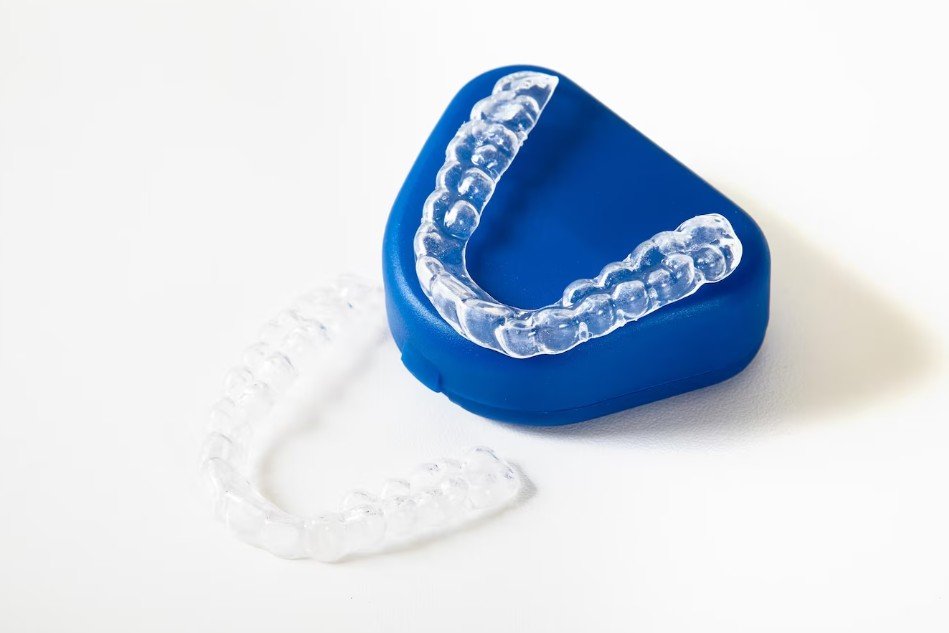When most people think of mouthguards, images of athletes in helmets or contact sports come to mind. Traditionally, mouthguards are associated with protecting teeth during rugby, football, boxing, or hockey games. However, the benefits of wearing a mouthguard extend far beyond the playing field. In fact, many people could gain significant health and safety advantages by considering a mouthguard—even if they’re not involved in sport at all.
If you think mouthguards are only for athletes, it’s time to reconsider. Here are some surprising reasons why you might need a mouthguard, what types are available, and how they can protect your smile and overall wellbeing in everyday life.
Table of Contents
1. Protecting Your Teeth During Sleep
One of the most common non-sport reasons for using a mouthguard is to guard against teeth grinding, also known as bruxism. This involuntary grinding or clenching often happens during sleep and can cause serious dental damage over time.
Bruxism wears down the enamel, leading to sensitivity, cracked or chipped teeth, and even jaw pain or headaches. A custom-fitted night guard acts as a protective barrier between your upper and lower teeth, absorbing the pressure and preventing direct tooth-on-tooth contact.
For many, this is a silent problem—often only noticed when dental issues arise or a partner complains about noise at night. Wearing a mouthguard while sleeping can reduce damage, ease discomfort, and improve long-term oral health.
2. Managing Jaw Pain and TMJ Disorders
Temporomandibular Joint (TMJ) disorders affect the joints and muscles that control jaw movement. Symptoms can include jaw clicking, stiffness, pain around the ears, and difficulty opening the mouth fully.
A mouthguard designed specifically for TMJ can help by cushioning the jaw and reducing muscle tension. These devices promote better alignment of the jaw, decreasing strain on the joints and muscles.
Even if you don’t have a formal diagnosis, if you experience regular jaw discomfort or headaches, a mouthguard might offer relief and prevent worsening symptoms.
3. Preventing Injuries in Non-Sport Activities
Not all injuries happen in competitive sports. Everyday activities can also put your teeth at risk. Falls, bicycle accidents, skateboarding mishaps, or even vigorous play with children can cause dental trauma.
Wearing a mouthguard during these activities adds an important layer of protection, helping to prevent chipped, broken, or knocked-out teeth. If you or your kids are involved in these kinds of physical activities, a mouthguard is a simple safety measure to consider.
4. Safeguarding Dental Work
If you’ve invested in expensive dental work such as crowns, veneers, or bridges, a mouthguard can help protect those restorations. Grinding or accidental trauma can damage dental work just as easily as natural teeth.
A custom mouthguards gold coast provides a cushion to absorb shocks and reduce wear on these investments, helping your smile last longer and avoid costly repairs.
5. Enhancing Comfort for Orthodontic Patients
People wearing braces or other orthodontic appliances often find their mouths sore or irritated from metal brackets and wires rubbing against soft tissues.
Specialised mouthguards designed for orthodontic patients can cushion the mouth and reduce discomfort during physical activity or at night. They protect both the teeth and gums, helping you maintain comfort without compromising the treatment.
6. Reducing the Risk of Concussions
While mouthguards won’t prevent concussions entirely, some studies suggest they can reduce the force of impacts to the jaw and help minimise brain injuries during falls or collisions.
For those working in environments with a risk of head or facial injury—such as certain trades, construction, or manual labour—wearing a protective mouthguard is a practical safety step.
7. Improving Breathing and Sleep Quality
Certain mouthguards, often called mandibular advancement devices, can help open the airway during sleep. This can reduce snoring and improve conditions like mild to moderate sleep apnoea.
Better airflow during sleep means more restful nights and less daytime fatigue. For people struggling with disrupted sleep, this kind of mouthguard can be a non-invasive solution worth discussing with your dental or medical professional.
What Types of Mouthguards Are Available?
Mouthguards come in several varieties to suit different needs and budgets:
- Stock Mouthguards: Pre-formed and ready to wear, these are the least expensive but tend to fit poorly and offer minimal protection or comfort.
- Boil and Bite Mouthguards: Made from thermoplastic material you soften in hot water before moulding to your teeth. These provide better fit and protection than stock guards and are widely available.
- Custom-Fitted Mouthguards: Made by a dentist from impressions of your teeth, these offer the best fit, comfort, and protection. They can be tailored to address specific issues such as bruxism, TMJ, or orthodontic needs.
While stock and boil-and-bite options may suit casual or occasional use, custom-fitted guards provide superior safety and durability—especially if you’re using one regularly.
How to Get the Right Mouthguard for You
The first step is identifying why you need a mouthguard. Whether it’s for sleep, jaw pain, protection during activities, or any other reason, a dental professional can recommend the best type and fit.
During a consultation, your dentist may assess your bite, check for signs of grinding or TMJ, and discuss your lifestyle and concerns. For custom guards, they take detailed impressions of your teeth to create a personalised device that fits snugly and works effectively.
Regular follow-ups can ensure the mouthguard continues to fit well and meets your needs as your mouth or activities change.
Final Thoughts
Mouthguards are more than just sports accessories. They offer real health benefits for a wide range of people—whether you grind your teeth at night, struggle with jaw pain, want to protect dental work, or just want to stay safe during everyday activities.
Ignoring these issues can lead to serious dental damage, chronic discomfort, and costly repairs. Taking the step to use a mouthguard early is a small investment with lasting payoffs.
If any of these surprising reasons resonate with you or your family, consider discussing mouthguard options with your dentist. Protect your smile and improve your quality of life—no matter what you’re doing.

